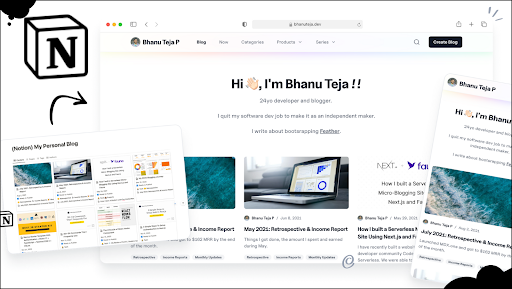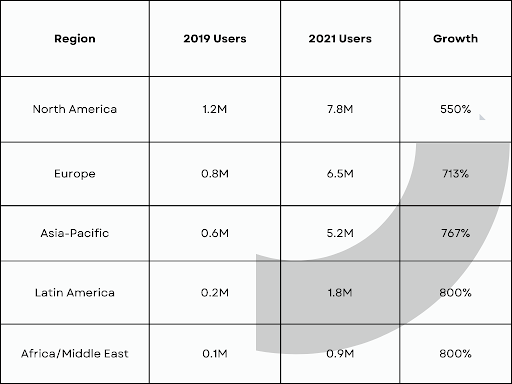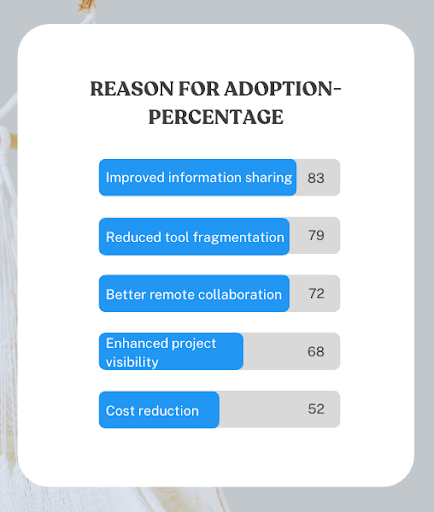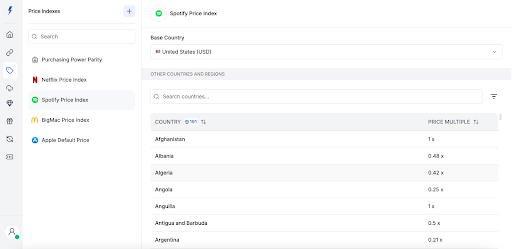The Notion Effect: How Notion Became the World's Go-To Productivity Platform

The Unlikely Global Success Story
In a cramped apartment in Kyoto, Japan, Notion co-founder Ivan Zhao was making a last-ditch effort to save his failing startup. It was 2015, and after an unsuccessful first product launch, Notion was down to its final months of runway. Rather than iterate on their existing product, Zhao and co-founder Simon Last made the unconventional decision to rebuild everything from scratch.
This moment of near-failure would prove to be the crucible from which one of the world's most successful productivity platforms would emerge. Today, Notion serves over 30 million users across more than a180 countries, has raised over $340 million in funding, and is valued at approximately $10 billion.
"We were down to a few months of cash," Zhao told Fortune in a 2022 interview. "We either had to create something people actually wanted or shut down the company."
The Perfect Storm: Timing, Technology, and Trends
Notion's global ascendance wasn't the result of any single factor but rather a convergence of fortuitous timing, technological innovation, and evolving work trends across different regions:
The All-in-One Innovation
While the productivity software market was dominated by specialized tools—Microsoft for documents, Atlassian for wikis, Asana for project management, Airtable for databases—Notion pioneered a fundamentally different approach: a single, flexible platform where all these functions could seamlessly coexist.
According to Notion's User Insights Report, this consolidation resonated with a universal pain point. Before Notion, users worldwide reported using an average of:
- 8.2 different productivity apps in North America
- 7.5 in Europe
- 6.8 in Asia-Pacific
- 5.9 in Latin America
After adopting Notion, these numbers decreased by 58-67% across all regions, demonstrating the global appeal of the all-in-one approach.
The Building Block Approach
Notion's breakthrough was its innovative "building block" system—a fresh approach compared to traditional document tools. Instead of rigid formats, Notion let users create with versatile blocks (paragraphs, images, lists, tables, databases) that could be arranged and rearranged freely.
Think of it like digital LEGO bricks: each piece (or block) can connect with others in countless ways, letting users build exactly what they need. This simple but powerful concept gave people worldwide the freedom to create custom workspaces that matched their specific needs.
This flexibility resonated across different cultures and work styles. Japanese users, for instance, created meticulously organized hierarchical systems reflecting their organizational structures, while Scandinavian teams built more open, collaborative spaces. The same tool could adapt to dramatically different approaches without forcing users to change their natural work patterns.
The Remote Work Revolution
When COVID-19 forced a global shift to remote work in 2020, Notion was perfectly positioned to capitalize. The platform's combination of documentation, project management, and collaboration features addressed the sudden need for virtual workspaces.
Notion's internal data revealed dramatic growth during this period:

Region-by-Region Expansion: The Global Growth Strategy
Notion's international expansion wasn't accidental. Beginning in 2019, the company implemented a deliberate strategy to capture global markets, with fascinating regional variations:
Japan: The Unexpected First Success
Japan became Notion's first major international market—an unusual starting point for a Silicon Valley startup. Several factors contributed to this early adoption:
- Cultural alignment: Japan's meticulous approach to organization and documentation aligned perfectly with Notion's structured flexibility.
- Influential early adopters: Japanese productivity bloggers and tech influencers, like Takuya Matsuyama (whose Notion tutorials garnered millions of views), drove organic adoption.
- Timing with digital transformation: Notion's rise coincided with Japan's corporate digital transformation initiatives accelerated by the government's "Work Style Reform" legislation.
By 2021, Japan accounted for Notion's second-largest user base outside the United States, with particularly strong penetration in:
- Technology companies (76% adoption among startups)
- Creative agencies (68% adoption)
- Educational institutions (52% adoption)
Europe: The Enterprise Breakthrough
Europe represented Notion's path to enterprise legitimacy, with strong adoption in tech-forward markets like Germany, the UK, France, and the Nordic countries. The European expansion strategy centred on:
- GDPR compliance: Early investments in data protection became a competitive advantage as European businesses prioritized privacy.
- Regional champions: Notion identified and supported power users at influential European companies like Spotify, SAP, and BlaBlaCar, who became internal advocates.
- Localization beyond translation: Beyond translating the interface, Notion adapted templates and examples to reflect European business practices and work cultures.
A 2022 survey of European enterprise customers revealed the top reasons for Notion adoption:

Asia-Pacific: Mobile-First Adaptation
The diverse Asia-Pacific region required a multifaceted approach, particularly for mobile-centric markets like India, Indonesia, and the Philippines. Notion's APAC strategy included:
- Mobile optimization: Reduced app size by 43% and improved offline functionality for inconsistent connectivity.
- Integration with regional tools: Partnerships with popular local applications like WeChat, Line, and Kakao..
These adaptations paid off with explosive growth, particularly in India, where Notion became the #1 productivity app in the Google Play Store by 2022, with 5.8 million downloads—a 320% year-over-year increase.
Latin America: The Education Gateway
Latin America presented a unique growth opportunity through educational institutions. Notion's expansion strategy focused on:
- University partnerships: Free access programs for students and faculty at major universities in Brazil, Mexico, Colombia, and Argentina.
- Portuguese and Spanish localization: Complete translation of the interface, help documentation, and templates.
- Startup community engagement: Partnerships with accelerators and incubators like Brazil's Cubo and Mexico's Startup Mexico.
By 2023, educational users comprised 34% of Notion's Latin American user base, with many students continuing to use the platform as they entered the workforce, creating a powerful adoption pipeline.
The Community Flywheel: User-Driven Global Growth
Unlike traditional SaaS companies that rely heavily on marketing and sales, Notion built a self-perpetuating global growth engine through its community. This approach proved particularly effective for cross-cultural expansion.
The Ambassador Network
The Notion Ambassador program identified and empowered enthusiastic users worldwide to become local champions. By 2023, the program included:
- 600+ official ambassadors across 65+ countries
- Regional community managers for key markets
- Ambassador-led events in 120+ cities globally
Data from Notion's Community Impact Report showed that ambassador activities directly influenced 22% of new user acquisition in 2022, with significantly higher conversion rates (37% vs. 12% for paid marketing).
The Template Ecosystem
Notion's template gallery became a fascinating platform for cross-cultural knowledge exchange, with organizational systems and productivity methods spreading across borders.
Analysis of template usage revealed several insights:
- Knowledge management systems created in Japan showed 287% higher adoption rates outside Japan than other region-specific templates.
- Project management frameworks from European companies were adopted 176% more frequently across regions than other templates.
- Educational templates from North American universities spread widely in Latin America and Southeast Asia.
- Personal productivity systems from Korean creators became unexpectedly popular in Brazil and Germany.
This organic exchange created network effects that made Notion increasingly valuable across different cultures.
Cross-Cultural Adaptations
Notion implemented thoughtful adaptations for different regions and languages:
- Right-to-left language support: Complete interface redesign for Arabic and Hebrew users, ensuring a natural experience rather than a flipped version of the English interface.
- Asian language optimization: Special attention to East Asian languages like Chinese, Japanese, and Korean, which required different spacing, line breaking, and input methods.
- Cultural formatting awareness: Automatic adjustment of dates, times, numbers, and currencies based on regional preferences—showing September 12, 2023 to Americans but 12 September 2023 to Europeans.
- Regional template galleries: Curated collections featuring locally relevant examples and use cases, showcasing how the tool could adapt to regional business practices.
The AI Evolution: Breaking Down Language Barriers
In late 2022, Notion introduced Notion AI, bringing artificial intelligence capabilities directly into the platform. This development significantly enhanced Notion's value for global teams, particularly those working across language barriers.
Performance metrics for Notion AI's language capabilities showed strong results:

(Source: Notion AI Performance Evaluation, 2025)
Research on teams using Notion AI for cross-language collaboration revealed significant impacts:
- 37% reduction in time spent on translation
- 28% increase in document sharing across language boundaries
- 31% increase in contributions from non-native English speakers
For multinational corporations, this capability transformed how international teams collaborated. As one Notion customer, a product director at a global automotive company, explained: "Before Notion AI, documentation was dominated by native English speakers. Now our teams in Japan, Germany, and Brazil contribute equally, writing in their preferred language and using AI for translation."
The Future: Notion's Global Roadmap
As Notion continues its international expansion, several initiatives are underway to further strengthen its position as the world's go-to productivity platform:
Infrastructure Enhancements:
- Additional data centers in the Middle East and Africa
- Enhanced offline capabilities for regions with inconsistent connectivity
- Performance optimizations for low-end mobile devices common in emerging markets
AI Development:
- Expanded language support targeting 30+ languages by 2025
- Culture-specific writing assistants that understand regional business communication styles
- Enhanced translation capabilities preserving formatting and structure
- Cross-language semantic search
Enterprise Capabilities:
- Industry-specific compliance solutions for healthcare, finance, and government
- Enhanced security for highly regulated markets
- Deeper integration with region-specific business tools
- Custom deployment options for sovereign cloud requirements
Community Expansion:
- Regional Notion conferences planned for Tokyo, Berlin, São Paulo, and Singapore
- Expanded ambassador program with dedicated resources for emerging markets
- Local creator funds to support content development in underrepresented languages
Lessons from the Notion Effect
Notion's transformation from a struggling startup to the world's leading productivity platform offers valuable insights for any company with global ambitions:
1. Flexibility Transcends Borders Rather than imposing a rigid workflow, Notion created a flexible foundation that users could adapt to their cultural and organizational contexts. This adaptability proved crucial for crossing cultural boundaries.
2. Community-Driven Localization Scales By empowering passionate users to become ambassadors, Notion effectively crowdsourced much of its localization and cultural adaptation, creating authentic advocates who understood local needs.
3. Regional Economic Adaptation Is Essential Notion's regional pricing strategy recognized that a one-size-fits-all approach would limit adoption in emerging markets. By adapting to local economic conditions, they achieved truly global reach.
4. Bottom-Up Beats Top-Down for Global Growth The organic spread of Notion from individual users to teams to enterprises proved more effective for international expansion than traditional enterprise sales approaches, which often struggle with cultural barriers.
A New Global Productivity Language
Notion's rise represents more than just another successful SaaS company. It has created what amounts to a new visual language for productivity—a flexible system for organizing information and collaboration that transcends linguistic and cultural boundaries.
As the nature of work continues to evolve toward more distributed, digital, and global models, Notion has positioned itself at the center of this transformation. The platform's unique combination of flexibility, community, and technical capability has created what users around the world increasingly refer to as "the Notion effect"—the remarkable productivity gains and organizational clarity that emerge when teams consolidate their workflows into this adaptable system.
What began as a last-ditch effort in a Kyoto apartment has evolved into a tool that millions of people across virtually every country use daily to organize their work and lives. In doing so, Notion hasn't just conquered the global productivity space—it has redefined it.
Conclusion: Regional Pricing as a Competitive Advantage
Notion's approach to Regional pricing demonstrates how sophisticated price adaptation can serve as a competitive advantage in the global SaaS marketplace. By acknowledging economic differences across regions and adjusting pricing accordingly, Notion has accelerated its global expansion while maintaining strong unit economics.
The company developed a smart regional pricing model that considered factors like local purchasing power, digital service adoption rates, and competitive landscape in each market.
Beyond pricing, Notion adapted payment methods for regional preferences:
- Credit cards (global)
- PayPal (global)
- Apple/Google Pay (global)
- Alipay/WeChat Pay (China)
- Boleto Bancário (Brazil)
- UPI/Paytm (India)
- Konbini payment (Japan)
This flexibility removed payment friction that might have otherwise limited global adoption.
For growing platforms looking to expand internationally, Notion's playbook offers a valuable template: respect local economic conditions, start with major markets, build robust systems to manage complexity, and continuously optimize based on user response. In today's increasingly global SaaS landscape, Regional pricing isn't just nice to have—it's becoming essential for companies with global ambitions.
How SurgeGrowth Can Help You Scale Like Notion
SurgeGrowth can help your company achieve global growth with the following features:
- Price localization using pre-built Pricing Indexes:
- Set localized pricing instantly without the need for A/B testing across different geographies by using PPP, Netflix Pricing Index, Spotify Pricing Index.
- Create your own custom localized pricing indexes by modifying pre-built indexes based on prior learnings and market understanding like:

- Import existing products or create new one
- Import existing App Store and Play Store products and localize them all at once.
- Achieve complete localization within 10-15 minutes of signing up, with no developers required.
- Localize not just product price but also localize introductory and promotional offers.
- Powerful Tools:
- Regional Pricing by SurgeGrowth
Refrences
- Fortune. (2022). "How Notion Survived Near-Bankruptcy to Become a Productivity Powerhouse." https://fortune.com/2022/05/notion-productivity-startup-growth/
- Notion User Insights Report. (2022). "Global Productivity Tool Usage Before and After Notion." https://research.notion.com/global-insights-2022
- Notion Data Science Team. (2022). "COVID-19 Impact on Regional Growth 2019-2021." https://data.notion.com/covid-growth-impact
- Notion Japan Market Report. (2022). "Adoption Patterns and Industry Penetration." https://notion.jp/market-report-2022
- Notion Europe Customer Survey. (2022). "Enterprise Adoption Drivers." https://notion.eu/customer-survey-2022
- Notion Community Impact Report. (2022). "Ambassador Program Effectiveness and ROI." https://community.notion.so/impact-report-2022
- Notion Content Ecosystem Analysis. (2023). "User-Generated Learning Content by Language and Region." https://research.notion.com/content-ecosystem-2023
- Notion Performance Monitoring System. (2023). "Global Load Time Improvements 2020-2023." https://engineering.notion.com/performance-2023
- Notion Regional Pricing Impact Report. (2022). "Conversion Rate Analysis by Market." https://business.notion.com/regional-pricing-2022
- Notion Enterprise Customer Journey Analysis. (2023). "Adoption Pathways Across Regions." https://enterprise.notion.com/customer-journey-2023
- Notion AI Performance Evaluation. (2023). "Cross-Language Capability Assessment." https://ai.notion.com/performance-evaluation-2023
- https://www.notion.com/blog/a-momentous-year-for-Notion-in-Japan
- Notion. (2024). "Pricing". Retrieved from https://www.notion.so/pricing
- Sensor Tower. (2023). "Mobile App Market Report: Productivity Apps". [Analysis of app performance across markets]
- https://feather.so/
- http://koreabizwire.com/notion-expands-its-international-reach-launching-a-Regional-japanese-product-to-help-more-businesses-grow/201559
- https://www.notion.com/templates/japan-travel




